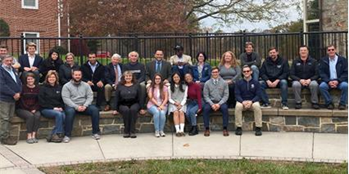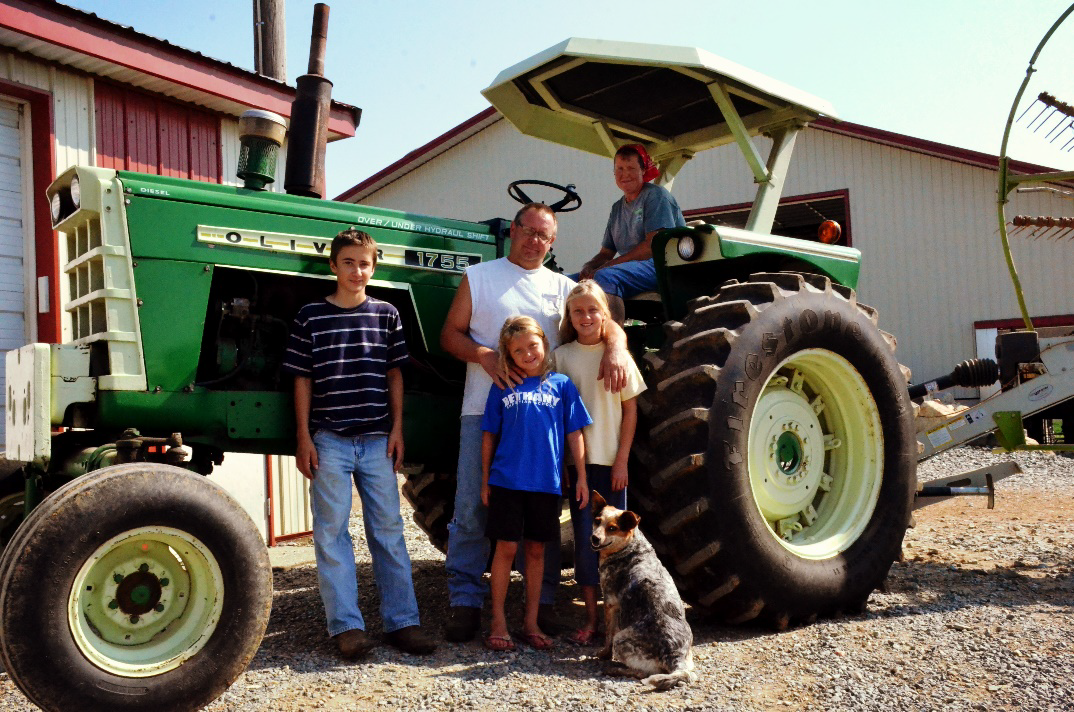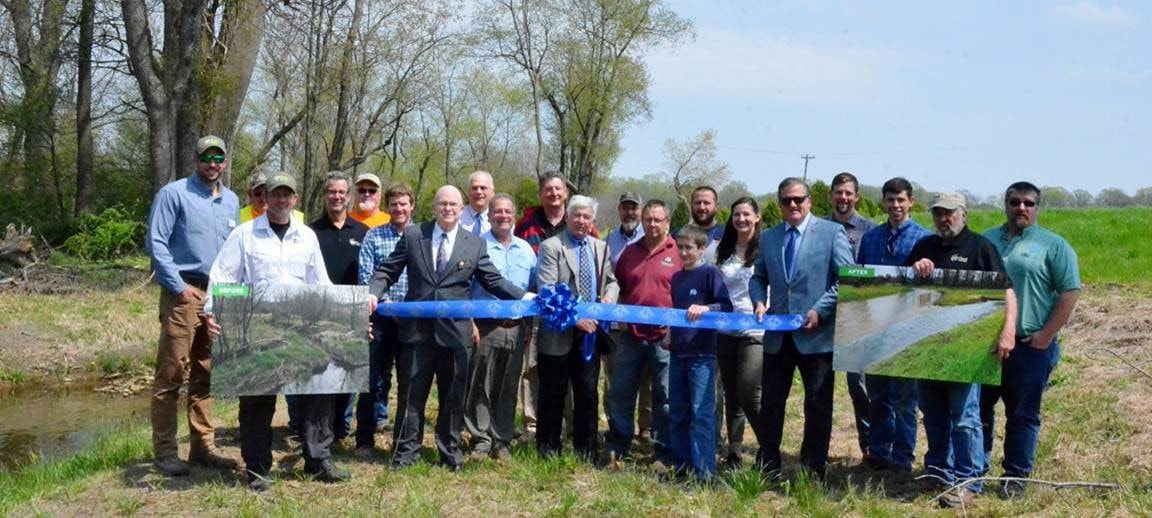|
News from the fields, farms and beyond…
Attending AG Day at the duPont Farm is now an official Maryland Department of Agriculture-certified opportunity to earn two continuing education units for those with Nutrient Applicator Voucher holders and Certified Farm Operators. AG Day will be April 8 from 9 a.m. until 2:30 p.m. at 592 Blake Road, Elkton and is hosted by Cecil Land Trust and Cecil Soil Conservation District. Alisa Webb, executive coordinator for Cecil Land Trust, said there will be several speakers including Cecil County Councilman Al Miller who will talk about the Million Acre Challenge and Amy Crowl from Denali Water Solutions.
1 Comment
ELKTON — Ten Cecil County families are being highlighted in a photography exhibit beginning March 4 at the Cecil County Arts Council.
The exhibit, titled “Agrarian Community, Nottingham Lots,” features Adam Jacono, assistant professor of Visual Communications at Cecil College, in conjunction with Cecil Land Trust and Historical Society of Cecil County. “The concept came from the Land Trust,” Jacono said. He and CLT President Bill Kilby were talking about stewardship of these lands that have been farmed for generations. “This is the first installment.” The opening reception is March 4 from 5 until 8 p.m. at the Arts Council gallery, 135 East Main St. in Elkton. ELKTON — The Cecil County Arts Council in Elkton is presenting two opportunities to buy local handmade Christmas gifts for your loved ones this Friday Dec. 3, with the Wonderland of Wreaths and Holiday Art Mart, from 5-8 p.m.
The 4th annual Wonderland of Wreaths features around 20 artists working in a variety of styles, from natural wreaths, to ones made entirely out of Christmas ornaments. Some wreathes even have special themes, one is especially for dogs, with wooden dog cookies, little Scottish Terriers, and paw prints. A purple and silver Raven’s wreath features a little Raven’s gnome and jacket. Cecil non-profits partner, make Port Deposit Farm an event spaceBy Matt Hooke [email protected]9/4/2021 PORT DEPOSIT-Three local non-profits, the Cecil County Arts Council, Historic Society of Cecil County, and Cecil Land Trust, have partnered to help transform Rock Run Hollow Farm in Port Deposit into a unique events space.
“This is something that we’ve endeavored to do that hasn’t been done before, that I know of, to get the three non-profits at 135 E Main Street work together on a joint project that combines art, history and land preservation, “ Historic Society President Paula Newton said. “I think this kind of a project can be a model for future non-profits.” The Arts Council invited artists to the space for a Plein Air event on Sunday, to give artists of all kinds the opportunity to create work about the historic space. The land, preserved by the Cecil County Arts Council, is owned by Isaac Rehert, a Baltimore Sun writer whose wife Ingrid Rehert was a renowned artist. FAIR HILL — The next time Bradford Luff teaches his beginning beekeeper class for Cecil Land Trust he’s going to let his students in on a few secrets in advance.
“Don’t wear black. The only natural enemy of the honeybee is the bear,” Luff, vice president of the Susquehanna Beekeepers Association, said to his five students Saturday morning. FAIR HILL — Organizers with Cecil Land Trust’s “Cycle For Cecil” bicycle event were excited about everything Saturday.
The annual ride that raises funds for Cecil Land Trust brought out over 250 athletes to ride 15- , 35- , or 60-miles through western and northern Cecil County. Alisa Webb, executive coordinator for the farmland preservation non-profit, was all smiles as riders arrived, mounted and took off from the Patsy DuPont Farm.  COLORA, MARYLAND – On Nov. 7, 2019, West Nottingham Academy hosted a meeting of policy makers, educators, farmers, researchers, government and nonprofit conservation organizations, business people, and West Nottingham students to discuss possibilities for Cecil County schools to divert food waste from the trash to methane digesters. Methane digesters convert food waste to usable compost and energy. Attendees at the meeting included County Executive Dr. Alan McCarthy, Delegate Andrew Cassilly, Councilman Al Miller, representatives from Maryland Department of Agriculture, Maryland Department of Energy, University of Maryland, and more. Last weekend, a group of people with a common goal came together to celebrate the completion of another successful stream restoration project in Cecil County. The land owners, Cecil Land Trust, Ecosystem Investment Partners (EIP), Wetland Studies and Solutions, Cecil County Government, Cecil Soil Conservation District and the Appalachian Stream Restoration team gathered at the property on Montgomery Road in Rising Sun, MD. The afternoon was spent celebrating this great accomplishment and included a tour of the restored stream where details of the project were shared as well as examples of how everyone involved had a hand in bringing this project to fruition.
The Horst Family dairy near Farmington is the latest Cecil County farm to be permanently protected by the Cecil Land Trust’s Fair Hill Rural Legacy Area (FHRLA) program.
ELKTON, MD. – On April 18, 2019, Cecil Land Trust (CLT) and its partners: Ecosystem Investment Partners (EIP); Wetland Studies (WSSI); Cecil County Government; Cecil Soil Conservation District; Natural Resources Conservation Service; Department of Natural Resources (DNR); Appalachian Stream Restoration; the Crothers Family, the Horst Family; and the Zartler Family, gathered to celebrate the completion of the partnership’s second Cecil County based restoration project benefiting the Chesapeake Bay Watershed.
|
|
We're Accountable
Making careful use of your support. |
|








